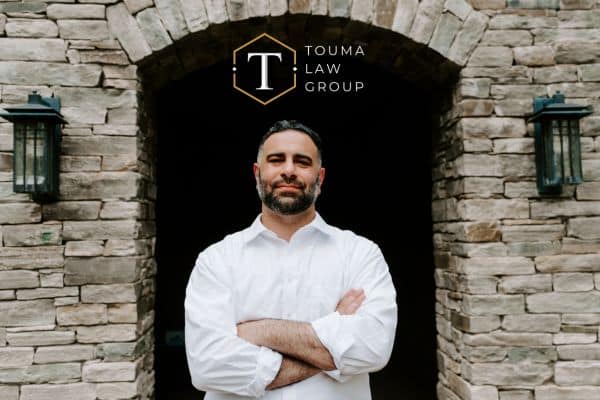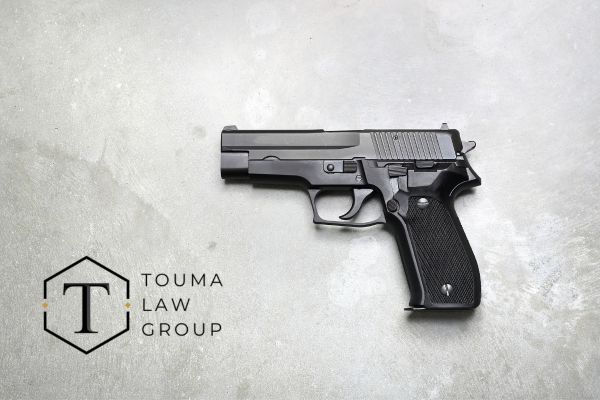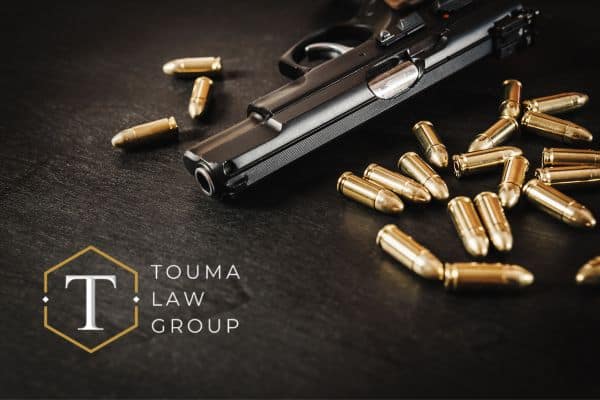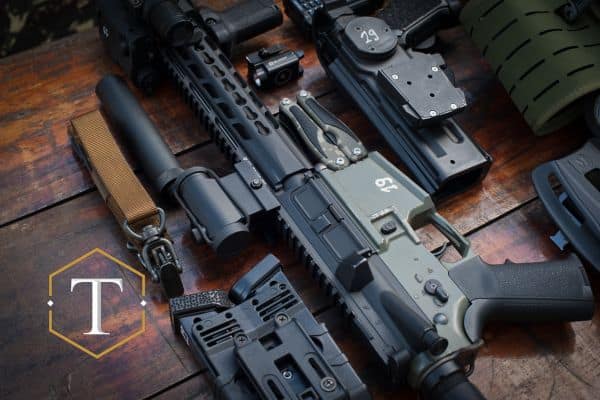South Carolina takes firearm offenses seriously, and even a first-time mistake can lead to harsh penalties, a permanent criminal record, and long-term restrictions on your gun rights. Whether you’re dealing with a 1st time gun charge in SC, a weapons possession allegation, or a felony-level offense, understanding the types of SC firearm charges is the first step toward protecting yourself and knowing when to seek guidance from an experienced gun charge lawyer.
South Carolina’s firearm laws integrate state and federal regulations with Title 16 of the SC Code, creating a complex system. Charges depend on the weapon type, incident location, criminal history, and any link to other crimes.
The sections below provide a clear breakdown of the most common firearm charges in South Carolina, the penalties you may face, and the steps to take if law enforcement accuses you of a gun-related offense.
What Are the Types of SC Firearm Charges?
South Carolina categorizes firearm offenses into several groups. Some involve simple unlawful possession, while others relate to violent crimes, stolen weapons, or federal violations. Even with constitutional carry in South Carolina, you can still face criminal charges for possessing, carrying, or using a firearm in ways prohibited under state law.
The most common categories include:
- Unlawful carry or unlawful possession
- Felon in possession of a firearm
- Weapon offenses connected to a violent crime
- Pointing or presenting a firearm
- Possession of a stolen firearm
- Use or possession of prohibited weapons
- Federal weapons charges
Each charge carries different penalties, and some have mandatory minimum sentences depending on the circumstances.

Unlawful Carry and Possession of a Firearm in South Carolina
Even with constitutional carry, South Carolina still places limits on where and how firearms may be carried. Many unlawful possession or carry charges come from simple mistakes, such as improper storage in a vehicle or carrying in a restricted location. Understanding these rules is essential to avoid a criminal offense.
Unlawful Carry of a Handgun (Section 16-23-20 / Section 16-23-460)
Despite recent changes to SC gun laws, you can still be charged with unlawful carry of a firearm in SC if you transport or conceal a handgun outside the conditions allowed by state law. South Carolina’s rules on where firearms may be carried, such as in vehicles, public buildings, restricted locations, or public transportation vehicles, remain strict even under permitless carry.
A handgun must be carried in a lawful manner, such as:
- Secured in a closed glove box, console, or trunk
- Carried openly when legally permitted
- Carried with a valid purpose, such as hunting, fishing, or traveling to and from a gun club or training course
Violating these rules can result in misdemeanor or felony firearms charges, depending on the facts.
Felon in Possession of a Firearm (Section 16-23-30)
A felon in possession of a firearm in SC faces a serious felony offense, even if the weapon was never fired or displayed. This charge also applies to individuals prohibited due to:
- A domestic violence restraining order or order of protection
- A prior violent crime
- A conviction involving drugs or firearm-related offenses
- Being a fugitive from justice
A conviction can bring multi-year prison sentences, loss of civil rights, and a permanent bar on firearm ownership under both South Carolina law and federal gun laws.
Learn More: Who is Prohibited from Owning a Gun in SC?
Firearm Charges Involving Criminal Conduct
When a firearm is connected to another criminal offense, South Carolina law imposes far harsher penalties. These charges often apply even if the weapon was never fired, so understanding how the law treats firearm involvement is critical.
Possession of a Weapon During a Violent Crime (Section 16-23-490)
One of the most serious weapons charges in the state, this felony applies when someone possesses a deadly weapon, such as a handgun, shotgun, rifle, sword, or brass knuckles, while committing or attempting to commit certain violent crimes. An example of this would be assault with a deadly weapon or armed robbery charges.
This charge carries mandatory minimum sentencing, meaning the judge must impose additional prison time on top of the underlying criminal offense.

Pointing or Presenting a Firearm (Section 16-23-410)
Pointing and presenting a firearm in SC is a felony, even if the gun is not fired. Simply displaying or brandishing a firearm in a threatening way can lead to a criminal conviction. This includes pointing a gun at another person during a dispute, argument, or even what someone considers self-defense if it falls outside the protections of Stand Your Ground Laws or the castle doctrine.
Illegal Discharge or Unlawful Use of a Firearm
Firing a gun within city limits, near homes, or in a manner that endangers others can lead to criminal charges. These cases often involve additional allegations such as reckless endangerment or simple assault, depending on the facts.
Firearm Offenses Involving Stolen or Prohibited Weapons
South Carolina treats stolen or otherwise prohibited firearms especially seriously, and penalties increase quickly when a weapon is unlawfully obtained or linked to another offense.
Possession of a Stolen Firearm
Possessing a stolen weapon, whether you knew it was stolen or not, can lead to a felony weapons possession charge. Law enforcement may check the serial number of a firearm against the National Instant Criminal Background Check System or local evidence room databases. If the firearm shows up as stolen, charges may follow.
Possession of a Prohibited or Unregistered Weapon
Some weapons remain illegal under both state law and federal law, including:
- Machine guns
- Sawed-off shotguns
- Explosive devices
- Certain destructive weapons
Possessing or transporting prohibited weapons can lead to severe penalties under state and federal statutes enforced by the Bureau of Alcohol, Tobacco, and Firearms.
Firearms Trafficking & Straw Purchases
Transferring guns illegally, purchasing guns for someone who cannot pass a criminal background check, or engaging in interstate weapon transfers can result in federal weapons charges and lengthy federal sentences.

Penalties for Different Types of SC Firearm Charges
Penalties vary widely but may include:
- Jail or prison time (from months to decades)
- Mandatory minimum sentences for violent crimes
- Felony conviction and loss of firearm rights
- Fines that can reach thousands of dollars
- Permanent criminal records
- Restrictions under prohibited possession laws
- Loss of concealed carry privileges
Factors that influence sentencing include:
- Prior criminal records
- Whether the firearm was stolen or illegally possessed
- Whether someone was injured
- Aggravating factors such as domestic violence
- Whether the defendant is a convicted felon
- Whether the firearm was used during drug offenses or violent crimes
People often ask how long you can be in jail for a gun charge, but sentencing depends entirely on the specific statute and facts involved.
What To Do If You’re Charged With a Firearm Offense in South Carolina
Being arrested for a firearm-related offense can be overwhelming, especially for a gun charge first-time offender. What you do in the hours immediately after the arrest can impact the entire case.
1. Remain Silent
Do not explain, argue, or try to justify why you had the weapon. Your statements can be used against you.
2. Do Not Consent to Searches
Under the Fourth Amendment, you have the right to refuse a warrantless search unless law enforcement has probable cause. This may become crucial later in your defense.
3. Contact a Criminal Defense Attorney Immediately
A lawyer experienced in firearms offenses and weapons-related charges can evaluate the evidence, challenge unlawful searches, and guide you on defense strategies that may apply in your case.
4. Avoid Discussing Your Case With Anyone
Even messages to friends or family can be used against you.
5. Ask Your Attorney How to Strengthen Your Case
In some situations, a lawyer can advise on proactive steps to help reduce penalties or support motions to suppress evidence.
People often ask how to get a gun charge dismissed. While dismissals depend on the specific facts, strong defenses may include:
- Illegal search and seizure
- Lack of probable cause
- Unlawful traffic stop
- False identification of the weapon
- Violations of constitutional rights
- Lack of intent or knowledge
A skilled gun charges lawyer can examine every detail to determine what strategies apply.

Contact Touma Law Group Today
If you’re facing gun-related criminal charges or any type of SC firearm charges, you need legal counsel who understands both South Carolina law and the complexities of federal regulations. Touma Law Group defends clients across South Carolina against felony weapons charges, unlawful possession charges, firearms violations, and more.
We stand between you and the system, protecting your rights, building your defense, and guiding you toward the best possible outcome.
Call (864) 618-2323 to schedule a free consultation. Your future, freedom, and rights matter. Let our team fight for you.
Frequently Asked Questions
What are the three categories of firearms?
Firearms are classified into handguns, rifles, and shotguns. SC laws vary by weapon type. Handguns often fall under unlawful carry rules, while rifles and shotguns are linked to hunting laws, crime enhancements, or illegal weapons like sawed-off shotguns.
What are the penalties for illegal gun possession in SC?
Penalties depend on the specific statute, criminal history, and whether the firearm was linked to another offense. In South Carolina, illegal possession may result in:
- Misdemeanor or felony charges
- Jail or prison time, ranging from 30 days to several years
- Mandatory minimum sentences for crimes like possession of a weapon during a violent crime
- Fines, often in the thousands
- Loss of firearm rights under both state and federal law
A conviction also creates a permanent criminal record, which can affect employment, licensing, and future firearm ownership.
What is a class C felony in SC?
South Carolina doesn’t use the “Class A, B, C felony” system; it applies statute-specific penalties. A “Class C felony” usually indicates a serious offense punishable by over a year in prison. Firearm-related felonies include felon in possession of a firearm, possession during a violent crime, pointing or presenting a firearm, and possession of a stolen firearm.



